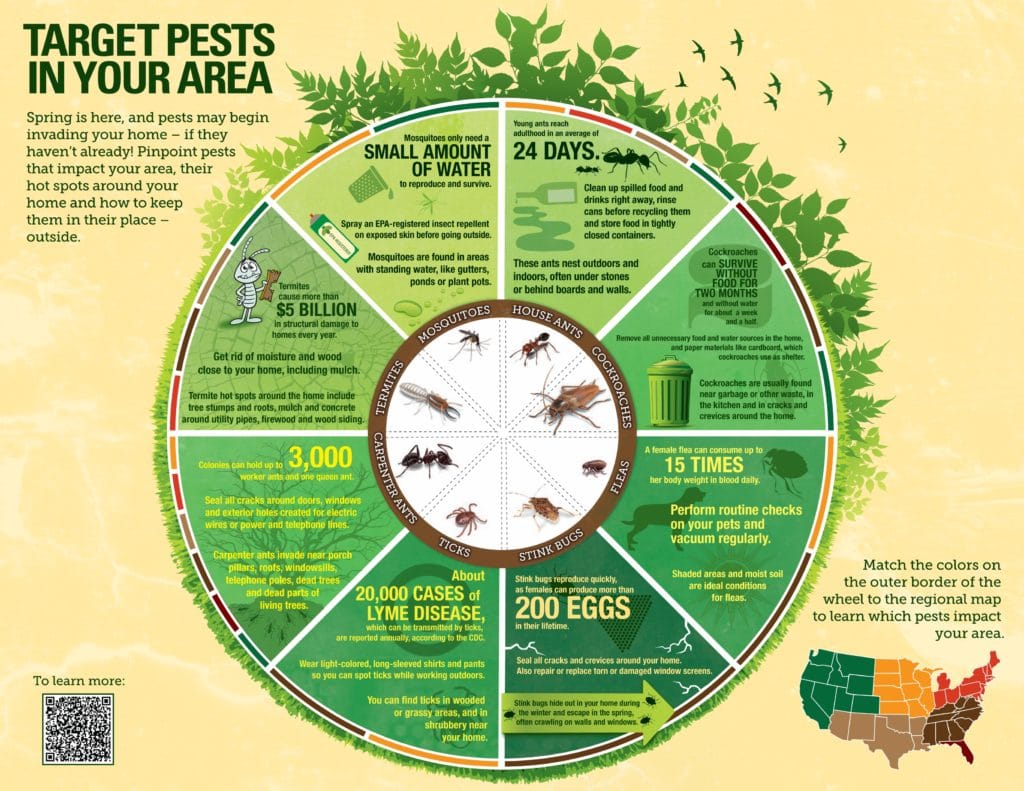Pest-Proofing Your Garden: Tips For Keeping Outside Bugs At Bay
Pest-Proofing Your Garden: Tips For Keeping Outside Bugs At Bay
Blog Article
Material By-Thorpe Fyhn
Imagine your garden as a haven, a place of tranquility and elegance. Nevertheless, the presence of outdoor pests can quickly interrupt this idyllic picture. Suppose there were simple yet efficient methods to keep these unwanted site visitors at bay and protect your garden oasis? By following a couple of practical tips and applying natural methods, you can develop an unified exterior space where your plants can grow undisturbed.
Natural Parasite Deterrents
To keep bugs far from your garden normally, plant fragrant herbs like mint and lavender. These aromatic plants not just add charm to your yard yet also work as reliable bug deterrents. Pests like insects, flies, and even some garden-damaging pests are fended off by the solid scents given off by these natural herbs. Merely placing them tactically around your yard can help create a natural barrier against undesirable bugs.
Along with mint and lavender, consider planting other herbs like rosemary, basil, and lemongrass to better improve your yard's pest-proofing capabilities. These herbs not just function as natural repellents but also have actually the included advantage of serving in food preparation or crafting homemade treatments.
Strategic Plant Positioning
Take into consideration the layout of your yard and the kinds of plants you need to strategically put them for optimum pest-proofing efficiency.
Start by grouping plants with comparable resistance to parasites with each other. By doing this, you can produce an all-natural obstacle that deters pests from spreading throughout your garden.
In addition, placing pest-repelling plants like marigolds, lavender, or mint near more at risk plants can assist protect them. Tall plants, such as sunflowers or corn, can work as a guard for much shorter plants against bugs like bunnies or ground-dwelling insects.
Remember to leave attic pest control near me between plants to improve air circulation and lower the risk of conditions that pests might lug.
Additionally, think about growing strong-smelling natural herbs like rosemary or basil near susceptible plants to puzzle bugs' detects and make it harder for them to find their targets.
Reliable Pest Control Techniques
For combating yard parasites effectively, implementing a multi-faceted insect control method is vital. Begin by urging natural killers like birds, ladybugs, and praying mantises to assist maintain insect populations in check. Presenting pest control martinsburg wv that draw in these valuable pests can assist in pest control. Furthermore, practicing great garden health by getting rid of particles and weeds where insects may hide can make your yard less congenial to unwanted visitors.
Consider using physical obstacles such as row cover materials or netting to protect susceptible plants from bugs like caterpillars and birds. Applying natural chemicals like neem oil or insecticidal soap can also be effective against specific bugs while being much less hazardous to advantageous bugs and the setting. https://howtoremoveratsfromceilin30517.techionblog.com/32012685/taking-care-of-a-bug-invasion-actions-for-emergency-situation-pest-control to turn your crops each period to avoid the buildup of pest populations that target certain plants.
Routinely examine your plants for indications of pest damages so you can take action promptly. By combining these techniques and remaining cautious, you can successfully control yard parasites and delight in a flourishing, pest-free garden.
Final thought
So, there you have it - with the best strategies, you can keep pesky outside parasites away from your yard and assist your plants thrive.
Did you recognize that growing mint has been shown to ward off mosquitoes and other pests, lowering the requirement for damaging chemicals by up to 60%?
By including all-natural deterrents and smart planting techniques, you can develop a lovely and pest-resistant garden sanctuary for you to appreciate.
